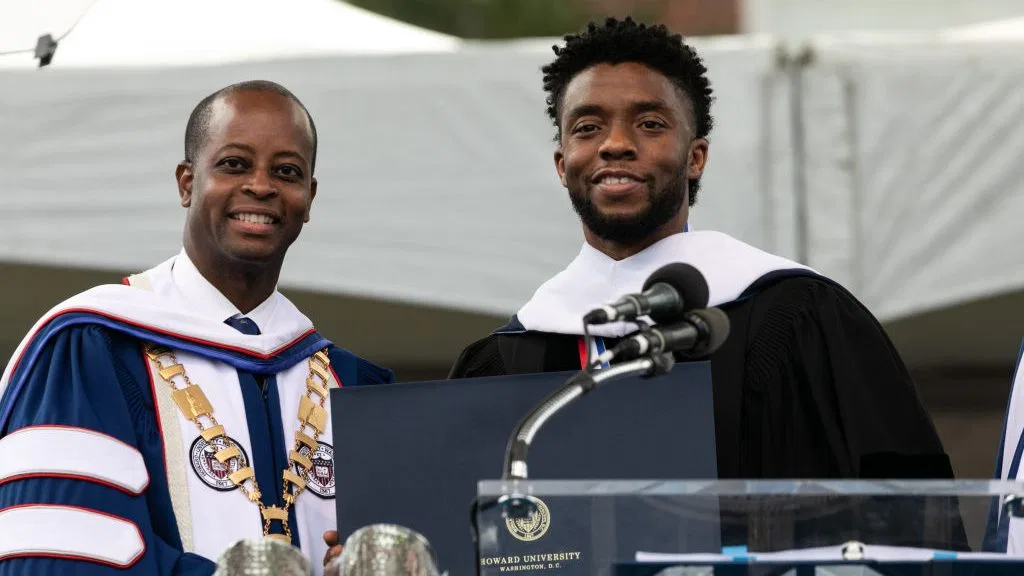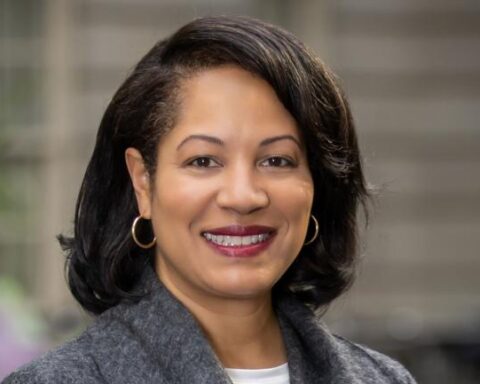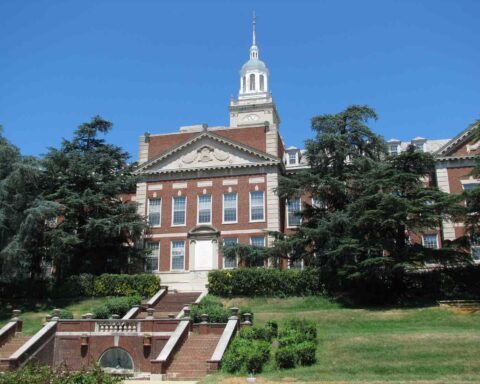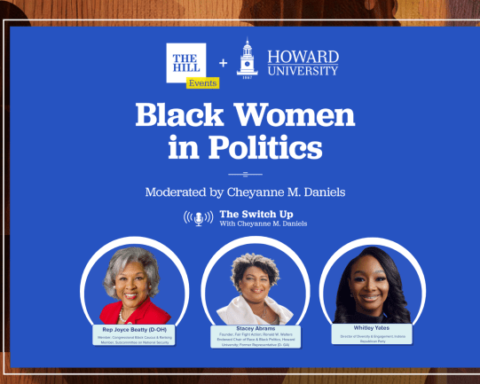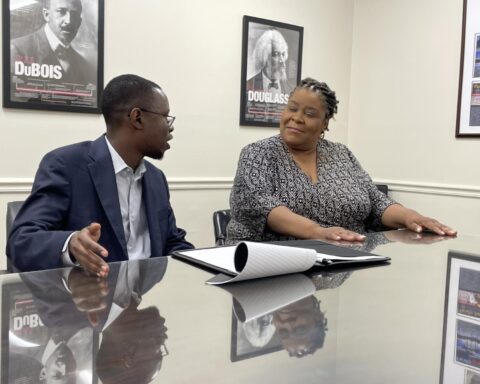Dr. Wayne A. I. Frederick is a board-certified surgeon, trained at Howard University, where he is president and a faculty member in the medical school, but he can also sound like a football coach and a griot when it comes to describing developments at the private historically Black college and university (HBCU) in Washington, where prominent Black journalists Nikole Hannah-Jones and Ta-Nehisi Coates recently joined the faculty.
“I think it often gets overlooked, but the reality is that our academic institutions, the anchoring of them, should be academic excellence,” Frederick told me. “It’s been the same blocking and tackling from day one. I always tell my team that to fill a bucket it takes one drop at a time, but you have to consistently put that one drop in. And that’s what we’ve been doing. It’s not exciting to watch the bucket get filled. People get excited when the bucket overflows, but the reality is that to get there you have to do the work. For the last seven to eight years, we’ve been working consistently behind the scenes to make the things that happen that aren’t as attractive and don’t make it to the newspapers.”
At Howard, the bucket is overflowing. The hiring of Hannah-Jones, the Pulitzer Prize-winning New York Times reporter, and Coates, the author of Between the World and Me, represent a major boost for the university and all HBCUs that have been at a competitive disadvantage with predominantly white universities for years in attracting the top Black talent in academia.
Hannah-Jones will be a tenured faculty member in the Cathy Hughes School of Communications, where she will establish a center for journalism and democracy that will train students in investigative skills and historical analysis. Coates will be the Sterling Brown chair in the Department of English. The appointments are supported through $20 million in donations from the Knight, MacArthur and Ford foundations and $5 million from an anonymous donor.
For years, Frederick has been trying to bring Coates back to Howard, where he was a student in the mid-1990s before leaving without a degree to start his journalism career. Coates has talked extensively about the impact the university had on his intellectual development and consciousness as a Black man in the world with ideas. He has drawn energy from some of the illustrious Howard alums who came before him: novelist Toni Morrison, writer Amiri Baraka, poet Lucille Clifton and actor Ossie Davis.
“I was admitted to Howard University, but formed and shaped by the Mecca,” Coates writes in Between the World and Me. “Howard University is an institution of higher education, concerned with the LSAT, magna cum Laude, and Phi Beta Kappa. The Mecca is a machine, crafted to capture and concentrate the dark energy of all African peoples and inject it directly into the student body. The Mecca derives its power from the heritage of Howard University, which in Jim Crow days enjoyed a near-monopoly on Black talent. The history, the location, the alumni combined to create The Mecca — the crossroads of the Black diaspora.”
Yet all that admiration for the greatness of the university and its abundance of Black excellence didn’t mean that Frederick has had an easy time wooing Coates back to The Mecca. Coates has taught most notably at the Massachusetts Institute of Technology amid all of his other writing obligations, but he’s never been in a full-time capacity with the prestige of an endowed chair. The two Howard men stayed in touch, and when Hannah-Jones was denied tenure at the University of North Carolina at Chapel Hill in May, Coates asked Frederick if he would speak with her. “I made the case to Nikole for what we’re trying to do at Howard, and when she did turn down tenure at Chapel Hill, we were able to finalize things fairly quickly by our usual standards,” Frederick said. “Given her work and Ta-Nehisi’s work, it was a no-brainer for us.”
It was always going to be a package deal to bring them both to the university. “It’s very important that they came together,” said Frederick, who has been president of Howard since 2014. “That joint support and commitment says a lot about what they think about the university’s potential and what it is today.”
Frederick hopes that the hires will help attract other top Black scholars to the university to join what he believes is already a top-tier faculty. “We are positioned to attract even more great talent,” he said. “I think what we have to do now is to really go out and make sure that we tell our story as to why joining us is great for their career. The thing that has held us back in the past is lack of financial support to draw on dollars to make the hires of Nikole and Ta-Nehisi possible.”
In a summer of unprecedented success with the celebrity hires of Hannah-Jones and Coates, more than $3 million was raised for the Howard University golf program during the Bison at the Beach Inaugural Golf Classic, a two-day event held in June at the Pebble Beach Golf Links in California. In 2019, NBA superstar Stephen Curry committed to funding the program for six years. While Frederick has emphasized academic excellence, he’s also been an enthusiastic supporter of athletics at the university. “We’re going to invest in our athletic programs to continue to be an important part of the university,” he said. “The first part is to make sure that our student-athletes are graduating and they are doing well. We obviously want to win, so we have to hire the right coaches and make the right investments in the programs.”
For Frederick, it all comes back to blocking and tackling: accomplishing the fundamental everyday tasks that allow for an infrastructure to support high-powered faculty like Hannah-Jones and Coates. “When I was hired in 2014, we had to do some basic blocking and tackling. There were just some fundamental things not in place.”
And while Frederick recognizes how the celebrity of famous alums such as Vice President Kamala Harris and Coates have brought attention and acclaim to the university, he points out that the school is greater than a handful of people or two glamorous hires. He wants this moment to reflect the hard work that has already been done to make Howard a great university and what it could be in the future. “Kamala is going to get a lot of attention, but every single day one of my 70,000 alumni is out in the world blocking and tackling. They may not get covered in the New York Times, but they are out in the community making the world a better place.”
